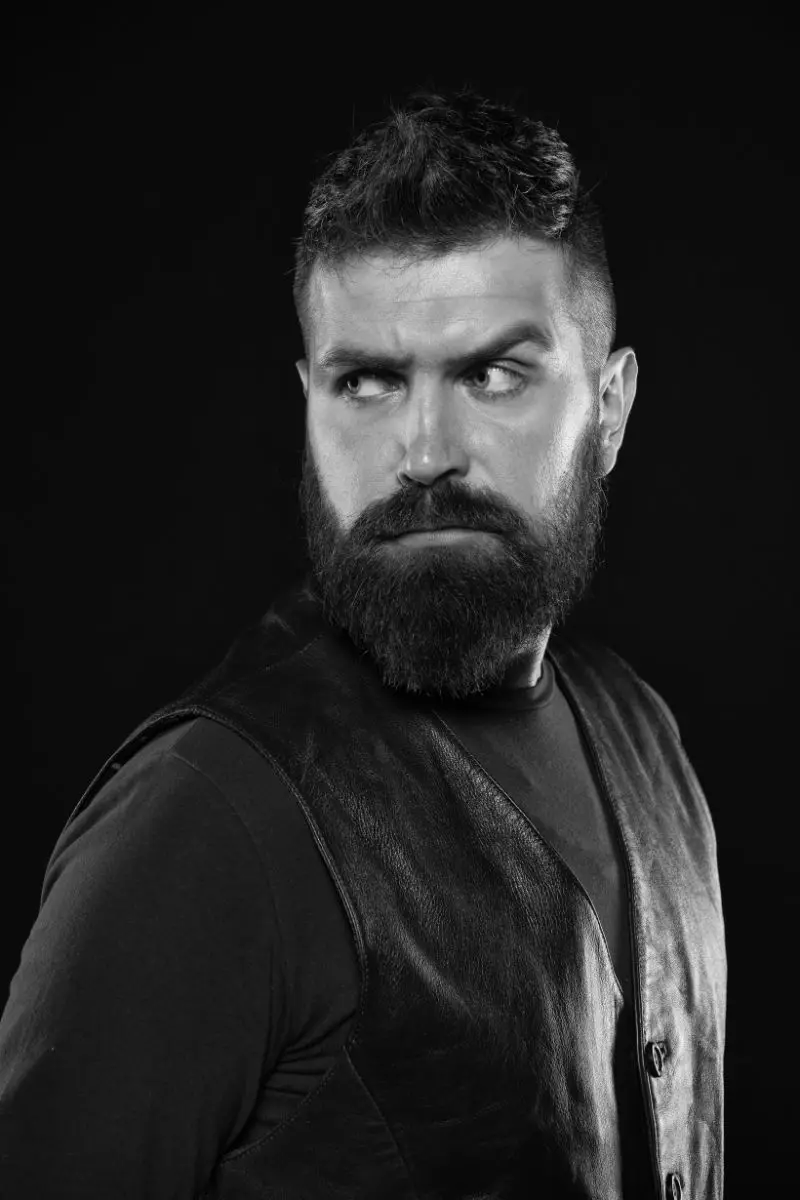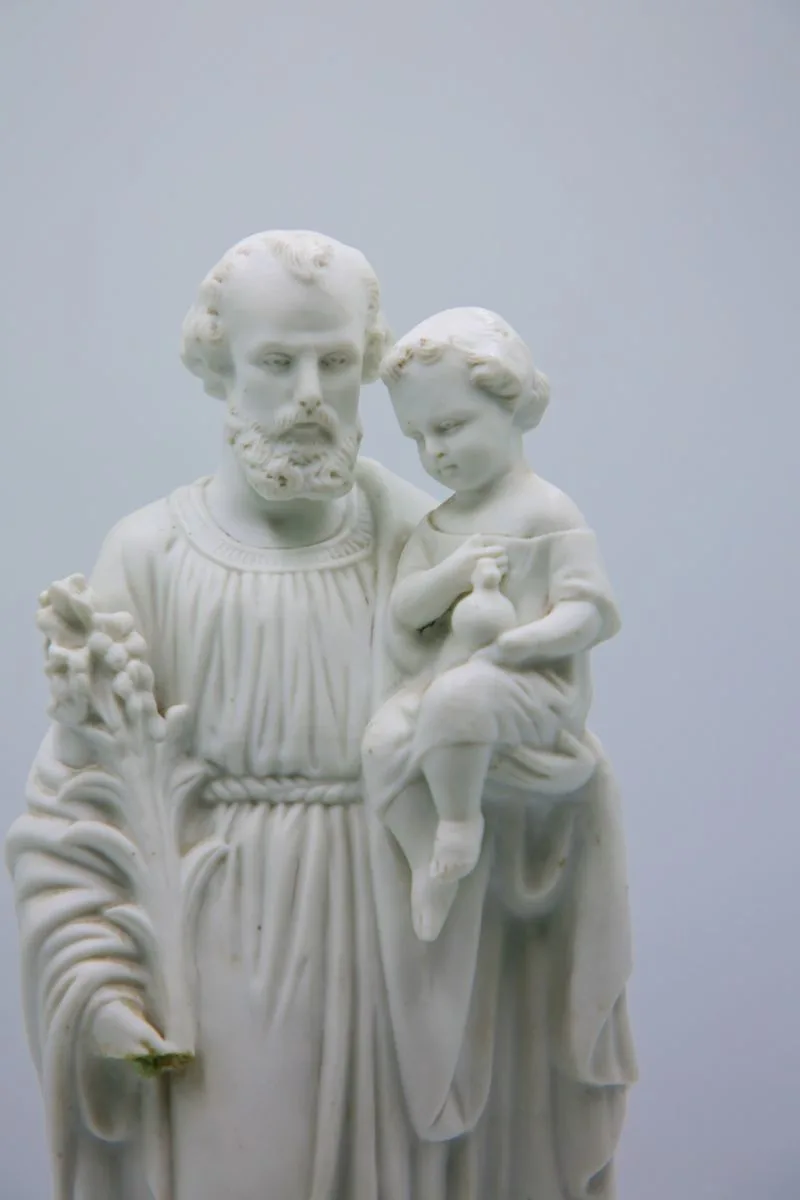What does the Bible say about cutting hair? Is it a sin?
Introduction
Let’s be honest; there are some weird commands in the Bible. However, there are also some even weirder commands that we’ve heard are in the Bible, but actually aren’t or are misunderstood.
For instance, some would argue that cutting your hair is a sin according to the Bible, but is it really?
Let’s check out what the Bible says about cutting your hair and determine whether God truly views it as a sin.
So, Is Cutting Your Hair a Sin in Christianity? What does the Bible say?
Oftentimes, the passage that people will use to support the notion of cutting your hair being a sin is Paul’s writings in 1 Corinthians. However, this passage seems to only support that notion for women and actually opposes the notion for men.
Paul writes that if a man has long hair, it is disgraceful, while a woman’s long hair brings her glory.
If taken at face value literally, men should cut their hair, and women should not. However, most scholars believe that this is more about the culture at the time than a true theological statement.
For example, in the Old Testament, we find verses that seem contrary to this.
In the Old Testament, we find that renowned men like Absalom and Samson had long hair, and it didn’t seem a disgrace at that point in time.
In fact, Leviticus 19:27 specifically prohibited the cutting of certain hair for the Jews.
Situations like this are why it is so important to understand all of the context surrounding a passage in the Bible.
In order to truly understand a biblical passage, one must first understand who was writing it, who it was being written for, and why it was being written, as well as the cultural and historical context surrounding that time period.
In terms of these Old Testament passages, we must consider the fact that the purpose of the law was to not only point out the people’s sins but also to set them apart from the other nations as being holy and God’s chosen people.
They were meant to not fall in with the pagan practices of the other nations.
For instance, pagan cults used to shave their forelocks as a sign of faithfulness to their belief system.
This is why God commanded the Israelites to not do this, to show that they were different and not faithful followers of the pagan belief systems.
Likewise, we must consider cultural context when looking at what Paul wrote in 1 Corinthians.
One way of looking at it is that since Paul seems to appeal to ‘nature’ he might be appealing to the ancient Greek worldview that saw nature as the determiner of philosophy.
To put it simply, he was appealing to the cultural norm at the time.
Clearly, he could not have meant that for all time, men wearing long hair and women wearing short hair were sinning.
In fact, Paul wore long hair for a time in Corinth, but we’ll talk more about that later.
The point is that we cannot always take biblical passages at face value.
We must do the work and study to learn the true context of each passage and discover how it should apply to us today.
In this case, it seems that Paul’s statements here were more about the culture that was popular at that time rather than a theological blanket statement for all times and cultures.
READ MORE: Is cheating on a test or homework a sin?
It’s all about the heart
The truth of the matter is that the Bible makes it clear that God is much more concerned about our hearts than He is about our outward appearances.
Could cutting your hair be a sin if you are doing it for selfish motives or disrespectful reasons?
Of course.
In fact, anything could be a sin if done in a sinful way.
This is what makes spiritual discernment so important in our daily walks.
We must be able to discern the thoughts and intentions of our own hearts in everything that we do to ensure we are walking in Christ rather than our own selfish desires.
If you’re concerned that getting your hair cut might be a sin, examine your heart. Pray to God about your conviction and see if He removes it or even makes it stronger.
It may be something that He is revealing in you that may not be godly.
Regardless, He will guide you and lead you down a path to righteousness if you follow Him and listen to Him intently.
READ MORE: Is wasting food a sin in the Bible?
But what about Samson?

You may be wondering, “If cutting your hair isn’t a sin, then why was Samson punished for having his hair cut by Delilah?”
That’s a great question! However, again, we must know the context of the story before we try to extract a biblical or theological truth from it.
Samson had been dedicated as a Nazirite, someone who is “holy unto God.”
These were certain people who took an oath of being devoted to God in a different way that was more intense and required certain actions to be taken and others to be prohibited.
Nazirites were not allowed to drink or eat fruit from the vine, they could not go near a dead body or defile themselves by touching anything that was considered unclean, and they could not cut their hair.
This was the oath that Samson took, and if you read the story closely, you’ll find that he violates all three of these laws, not just the last one.
This was why his extraordinary strength was taken away from him when his hair was cut, not because cutting your hair is a sin. He had taken an oath that we are not under today.
In fact, Paul took this same oath for a period of time which was why he wore his hair long for a time in the New Testament.
All of this goes to show that we must be prepared to consider everything when answering questions of sin like this, as there is often more to the passage or story than meets the eye.
Biblical reasons why cutting hair is not a sin
Focusing on weightier matters
“Woe to you, scribes and Pharisees, hypocrites! For you pay tithe of mint and anise and cummin, and have neglected the weightier matters of the law: justice and mercy and faith. These you ought to have done, without leaving the others undone.” (Matthew 23:23)
Matthew 23:1-29 is an interesting Bible passage that shows how Jesus addressed the hypocrisy of the Scribes and Pharisees who burden people with rules and laws they do not follow.
Jesus added that while they focused on laws, they ignored more crucial matters like justice, mercy, and faith.
Some Christians seem to be walking on this path today.
We pay less attention to crucial matters that deal with our faith in God, love for God and people, and holiness. However, we focus our efforts on a less weighty matter, like cutting hair is a sin.
God expects much from us.
Many souls are dying and going to hell because they have not heard the true Gospel of Christ.
Believers should be burdened with these issues, not hairstyle or hair length.
The Bible says that Jesus has come to free us from the curse of the law (Galatians 3:13).
These are the countless Mosaic laws in the Old Testament.
It is almost humanly impossible to remember and follow these laws without breaking them.
In fact, these laws are a curse, according to Galatians 3:13, and they have put us in bondage. But Jesus Christ came to fulfill the law so we can be free (Matthew 5:17).
Therefore, we must strive to serve God in Spirit and truth and not allow ourselves to be burdened by the rules and laws of men.
“For the kingdom of God is not eating and drinking, but righteousness and peace and joy in the Holy Spirit. For he who serves Christ in these things is acceptable to God and approved by men.” (Romans 14:17-18)
Barbers in ancient Israel
“And you, son of man, take a sharp sword, take it as a barber’s razor, and pass it over your head and your beard; then take scales to weigh and divide the hair.” (Ezekiel 5:1)
The mental picture most people have about people in ancient Israel is of primitive men who lack the basic tools we have today.
For example, we think they did not shave because they had no shaving creams or clippers. So, their beards flow like trees overwhelmed with leaves.
But that is far from the truth. Although the world has advanced technologically, and we now do things with much ease, it does not mean that there was no technology that made life easy and comfortable within the context of their time.
Two Bible verses prove that ancient Israelites had tools for cutting their hair: Ezekiel 5:1 and 2 Samuel 14:26.
Ezekiel 5:1 mentions a barber’s razor, suggesting that there were professional barbers and places like a salon they visited to trim or cut their hair.
Also, 2 Samuel 14:26 confirms that King David’s son Absalom cuts his hair at the end of every year.
These two passages from the Bible confirm that cutting hair was not alien to the ancient Israel community.
Therefore, it was an accepted practice. In Absalom’s case, cutting hair would have caused backlash from the people, a reprimand from God’s prophets, or punishment from God if it was a sin.
Baldness and medical conditions (Leviticus 13:40-44)
For many, cutting hair is not a matter of style but necessity.
This is the category to which people with bald heads and medical conditions belong.
So, if cutting hair is a sin, how would they cope? Would they walk about with patches of hair on their heads or cover their heads every day?
God is a loving father.
He is not only interested in how clean our hearts are but also cares about our emotions.
Baldness comes with some form of insecurities, especially when hair loss happens when a person is still young.
Some people resort to clean shaving, while others use artificial hair or wigs to look good and boost their confidence. Terming this sin negates God’s nature as a loving.
Some conditions like Alopecia and Hirsutism lead to hair loss and excess hair, even in women.
These require constant shaving or cutting to eliminate humiliation and discomfort. Also, cancer treatments lead to hair loss and affect hair texture and appearance.
So, it requires the hair to be cut off.
Doing this should not attract any form of divine judgment or punishment. Leviticus 13:40-44 addresses baldness and sickness like leprosy that causes hair loss.
The issue of hair weight and comfort
“And when he cut the hair of his head—at the end of every year he cut it because it was heavy on him—when he cut it, he weighed the hair of his head at two hundred shekels according to the king’s standard.” (2 Samuel 14:26)
Some people are incredibly hairy.
Their hair grows fast and is thick and heavy.
This can lead to discomfort like itchy skin based on skin type and heat, no matter how clean the hair is.
These people regularly cut their hair to reduce weight and be more comfortable.
Absalom was a hairy man.
He had to cut his hair every year to reduce its weight.
His hair weighs 200 shekels, an equivalent of about 5 pounds.
That is quite a weight to be carrying around. So, people with long and thick hair often experience headaches, and some ladies with soft scalps experience pain when braiding their hair.
Often, the best solution is a simple haircut.
Joseph cut his hair.

“Then Pharaoh sent and called Joseph, and they brought him quickly out of the dungeon; and he shaved, changed his clothing, and came to Pharaoh.” (Genesis 41:14)
Cutting of hair or grooming it can be influenced by culture.
For example, the Egyptians shave their heads and faces.
When Joseph, an Israelite, lived there, he had to adapt to their ways. For example, he shaved when released from prison to be presented to Pharaoh.
This cannot be considered a sin because Joseph maintained faith in the God of Israel. Nowhere was it recorded in the Bible that he bowed to Egyptian gods or denounced the one true God.
Even the Apostle Paul had to cut his hair after fulfilling a vow. “He [Paul] had his hair cut off at Cenchrea, for he had taken a vow.” (Acts 18:18)
Therefore, cutting our hair has nothing to do with the state of our hearts and relationship with God. Instead, we should focus on righteousness, love, and faith in God.
READ THIS NEXT: How soon after Death do you go to Heaven?
- About the Author
- Latest Posts
Bulgarea Anca is a devout Christian and the founder of Bible Wings, a comprehensive resource for Christians seeking to deepen their faith and understanding of the Bible. Raised within the Christian faith, Bulgarea Anca’s spirituality was nourished by her grandparents, who were cantors in their local church. Her Christian upbringing was further solidified by her education at a Christian school. Today, she uses her in-depth knowledge of the scripture to provide insightful and meaningful content through Bible Wings.


Roland otu Roland
Sunday 11th of June 2023
As pastor which lady pastor should marry